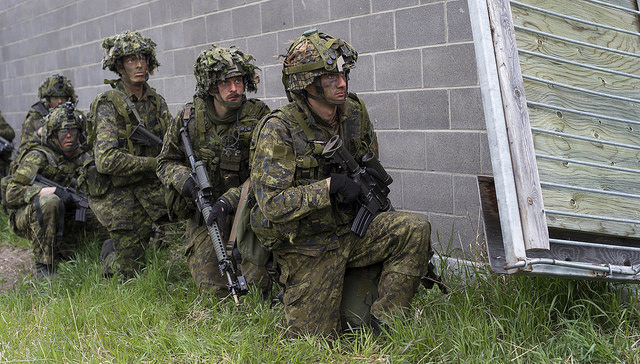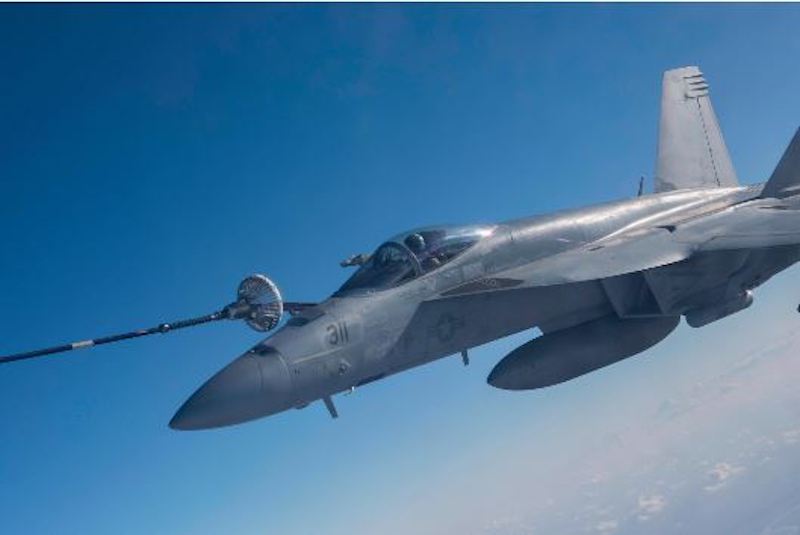1) How will the Defence Policy Review (DPR) impact Canada’s involvement in NATO?
With the advent of a multipolar world, the Review clearly states (PDF) that a return to a deterrence posture through NATO is a necessity. As such, Canada will maintain its strong involvement in NATO. Currently, the CF are contributing through Operation Reassurance aimed at reassuring European NATO members and deterring any future Russian aggression. Op Reassurance has a land component with the Canadian-led battlegroup in Latvia, maritime and aerial dimensions characterized by rotation of assets.
2) How will the Review impact Canada’s involvement in NORAD?
In the context of the defence of North America, the new Review states (PDF) that Canada will remain an active member of NORAD and will contribute to the modernization of its capabilities in light of new threats. One such emerging challenge that is mentioned is the proliferation of ballistic missiles (PDF) capable of reaching the North American continent. However, the new Review doesn’t say whether Canada should join the US-led Ballistic Missile Defence (BMD).
3) Will Ottawa prioritize the defense of Canada and North America or its contribution to international security or will it try to honour all its commitments simultaneously?
The new Review (PDF) clearly states that the CF must be ready to simultaneously uphold its obligations in protecting Canada and North America, as well as honouring its commitments to international security.
4) How does the latest Review respond to President Trump’s demands that allies do more in burden-sharing?
The Defence Policy Review goes in the direction of stepping up Canada’s efforts in maintaining international security. Indeed, Canada’s defence spending will reach 1.40% of GDP by 2024-2025. However, will that be enough to assuage the Trump administration’s demands in fairer burden-sharing? It is worth remembering that at the 2014 NATO Wales Summit, Alliance members agreed to reach 2% of GDP in defence spending by 2024.
5) In the event Canada steps up to the plate in contributing more to international security, will the CF return to traditional peacekeeping?
The Review stipulates (PDF) that the CF will be involved in combat operations as well as peacekeeping missions. Furthermore, the document clearly mentions that peacekeeping ops will be more complex and dangerous than those conducted in the past.
6) Will the defence spending priorities lie in size increase, readiness optimization or development of capabilities?
According to the Review (PDF) Canada’s defence budget will strive to see improvements in all three parameters. Indeed, Ottawa aims to add 3,500 people in the Regular component so that the CF will be able to successfully accomplish all its missions. Regarding the development of new military capabilities, the new Review states that Canada will allocate more than 20% of its defence expenditure to buying new equipment. As for operational readiness, the Review states that the CF must maintain high operational readiness.
Canada’s 2017 Defence Policy Review testifies to the growing imperative for NATO members to contribute more to defense in light of an increasingly uncertain strategic environment.
Photo: Canadian soldiers perform an assault on a fictional village during Exercise Maple Resolve (2017) by Sgt JF Lauzé via Flickr. Photo courtesy of the Canadian Forces Combat Camera, Department of National Defence.
Disclaimer: Any views or opinions expressed in articles are solely those of the authors and do not necessarily represent the views of the NATO Association of Canada.




